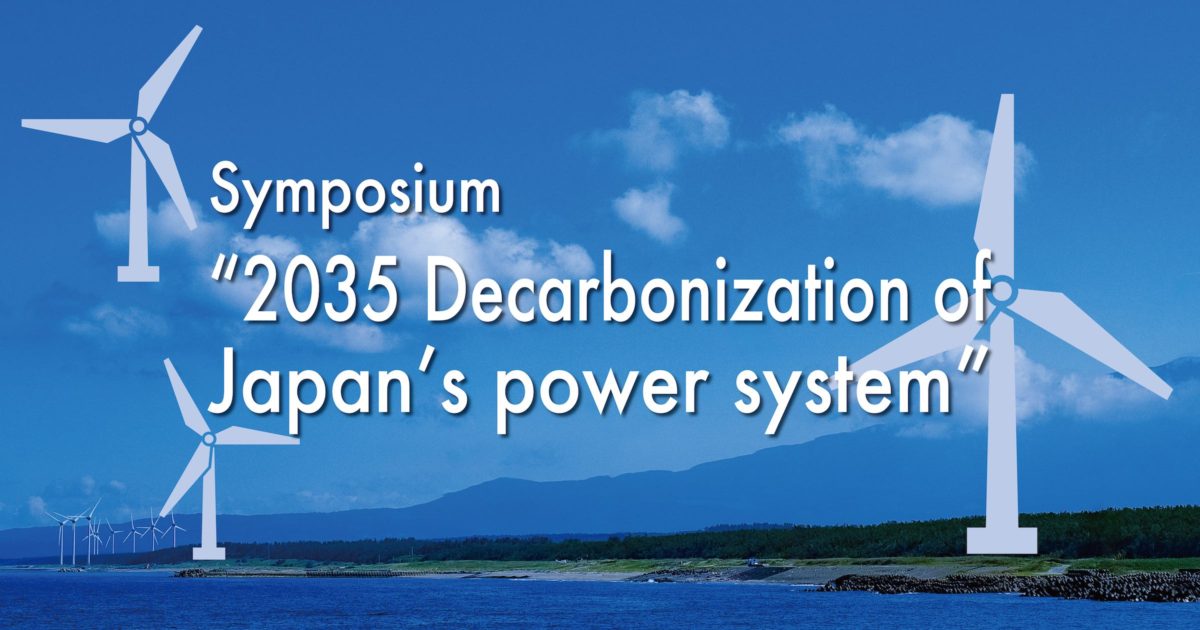
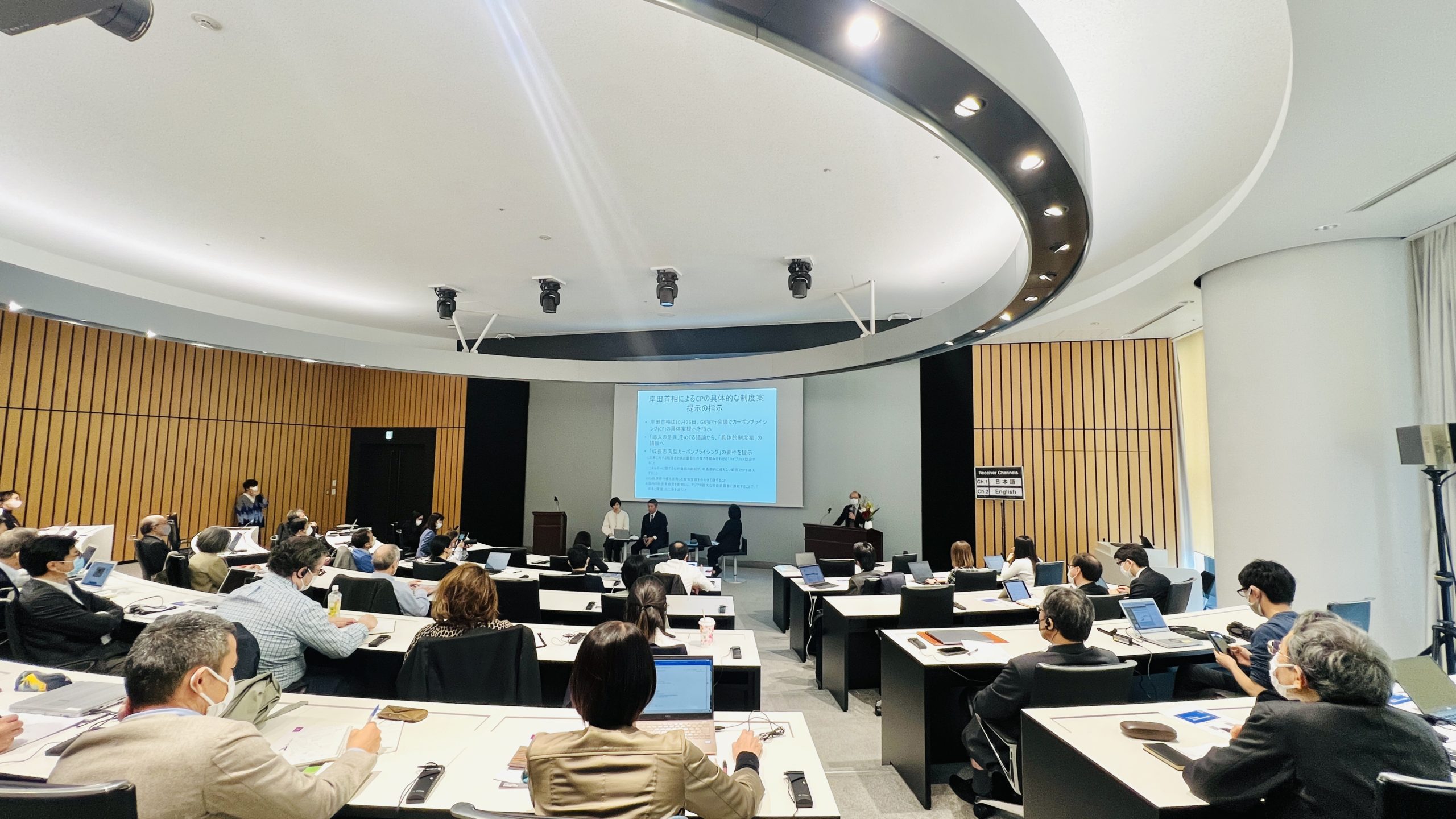
On March 1, 2023, the Lawrence Berkeley National Laboratory (the Berkeley Lab), a member of the national laboratory system supported by the U.S. Department of Energy, will release a study on the decarbonization of Japan’s power system. The study will shed light on how Japan can shift to a decarbonized electricity system by 2035 by significantly expanding the share of electricity from renewable sources. This is the latest of a series of reports by the Berkeley Lab’s research team on decarbonizing electric power systems in the mid-term horizon for the U.S. (2020), India (2021), China (2022), and now Japan (2023).
Decarbonizing the power sector by 2035 is a key milestone in achieving net zero emissions, as agreed last year by the leaders of the Group of Seven (G7). Expanding the use of renewable energy is beneficial in terms of cost, energy security, and emission reductions for Japan. The study, based on model analysis, will present a scenario to realize a shift to renewables in the electricity sector while achieving cost efficiency.
The Berkeley Lab and Climate Integrate invite you to a symposium featuring presentations by authors of the Japan, U.S., India and China studies and for discussions with experts on the implications of the studies and outlook for Japan. The event will also include opening remarks by Mr. Richard Duke, deputy special envoy for climate, U.S. Department of State, and a presentation on a report to be released the same day by Climate Integrate on policy proposals, to realize the scenario presented by the Berkeley Lab.
Schedule / How to participate
Date/Time:March 1, 2023 (Wed) 10:00-12:15(Japan Standard Time)
Hosts:The Lawrence Berkeley National Laboratory, Climate Integrate
Language: Japanese and English, Simultaneous interpretation available
Online (Zoom):Free of charge, pre-registration required (for 1000 guests)
Agenda
Opening remarks
- Richard Duke, Deputy Special Envoy for Climate, U.S. Department of State (online)
1. The Japan 2035 report
- Presentation on the Japan 2035 report
Kenji Shiraishi, Berkeley Lab, and Climate Integrate board member Document ▷ here - Presentations on power systems in 2035 in the U.S. and China
Amol Phadke (U.S.), Berkeley Lab Document ▷ here
Jiang Lin (China), Berkeley Lab Document ▷ here - Comments from co-author of the Japan report
Toru Morotomi, professor, Graduate School of Economics, Faculty of Economics, Kyoto University Document ▷ here
2. Comments
- Yukari Takamura, professor, Institute for Future Initiatives, the University of Tokyo Document ▷ here
3. Policy recommendations to achieve the 2035 Japan scenario
- Kimiko Hirata, executive director, Climate Integrate Document ▷ here
4. Q&A・discussions
The Lawrence Berkeley National Laboratory
Founded in 1931 on the belief that the biggest scientific challenges are best addressed by teams, Lawrence Berkeley National Laboratory and its scientists have been recognized with 16 Nobel Prizes. Today, Berkeley Lab researchers develop sustainable energy and environmental solutions, create useful new materials, advance the frontiers of computing, and probe the mysteries of life, matter, and the universe. Scientists from around the world rely on the Lab’s facilities for their own discovery science.
Climate Integrate
Climate Integrate, established in January 2022 in Japan, is an independent think tank conducting research, engagement and communication to accelerate policy changes and actions.
登壇者

Richard Duke
Deputy Special Envoy fo Climate, U.S. Department of State
Richard Duke serves as Deputy Special Envoy for Climate, focused on encouraging
major economies to define and implement ambitious emission reduction targets under the Paris Agreement. He also works to accelerate global progress towards carbon-free energy and to advance complementary “fast cooling” strategies, including rapidly reducing methane emissions. Previously, he was a consultant and Brookings Institution senior fellow. He also served as Special Assistant to President Obama, helping to craft and implement the Climate Action Plan, including defining the 2025 emissions reduction target for the Paris Agreement, spearheading an interagency push for the Kigali Amendment on HFCs to the Montreal Protocol, and authoring the U.S. Mid-Century Strategy for deep decarbonization. Previously, he served as Deputy Assistant Secretary at DOE and worked at NRDC and McKinsey. He holds a Ph.D. from Princeton.
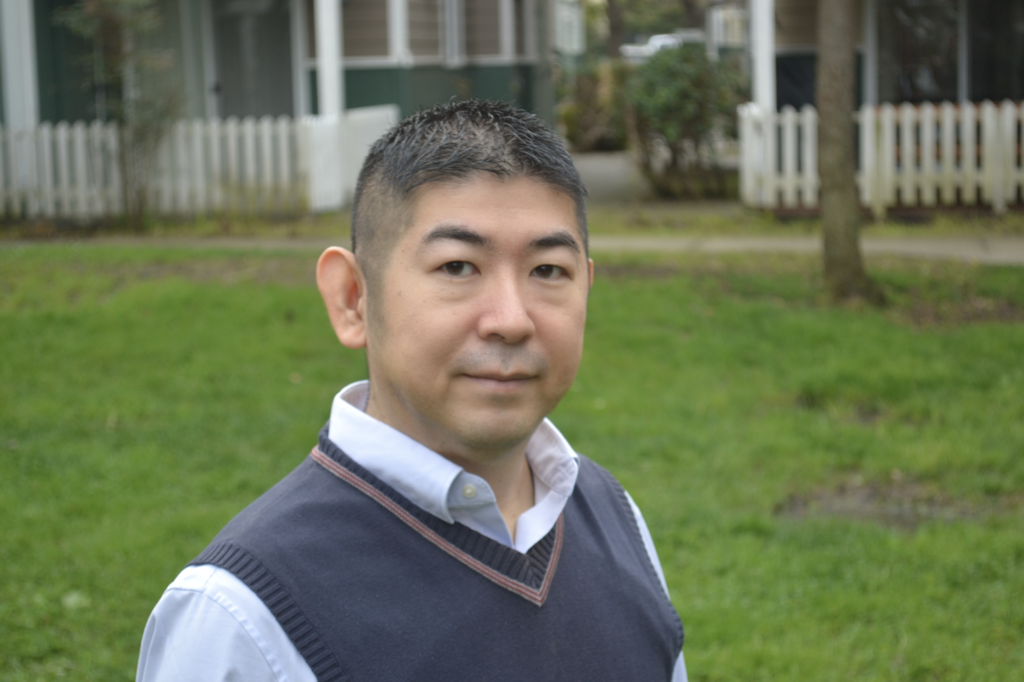
Kenji Shiraishi
Lawrence Berkeley National Laboratory
Kenji is a researcher at the Renewable and Appropriate Energy Laboratory (RAEL) and a Ph.D. student at Goldman School of Public Policy (GSPP) at the University of California, Berkeley. He is also a graduate student researcher at the Lawrence Berkeley National Laboratory. He has conducted various studies on renewable energy development and grid integration towards zero-carbon grid. He has ten years of professional experience in domestic and international climate policy as Deputy Director for Market-based Climate Policy at the Japanese Government (Ministry of the Environment) and Managing Director for Global Environment Centre Foundation. He holds a BS and MS in Chemical Engineering from the University of Tokyo and an MPP from UC Berkeley.

Amol Phadke
Lawrence Berkeley National Laboratory
Dr. Amol Phadke is a Staff Scientist in the Electricity Markets and Policy Department at the Lawrence Berkeley National Laboratory. He is an Affiliate and Senior Scientist at the Goldman School of Public Policy, University of California, Berkeley. Currently, his work is focused on grid scale battery storage, heavy-duty electric vehicles, deep RE penetration in the India power sector, and appliance and equipment efficiency in several emerging economies. Amol has published over 80 journal articles, research reports, and conference papers. His work has been featured in the Times of India, Economic Times, The Hindu, Nature Magazine, India and numerous other publications. Amol regularly advises the national government, utilities, and regulators in India on energy policies and programs. Amol has a Bachelor of Engineering degree from Government College of Engineering, Pune, India, and a M.S. and Ph.D. from the Energy and Resources Group, from UC Berkeley.
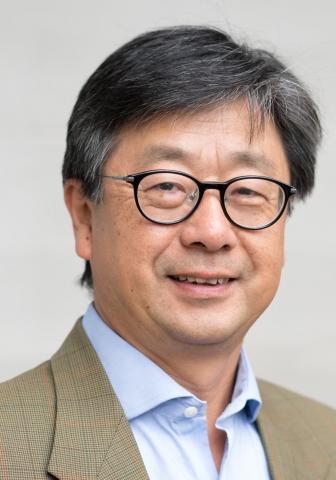
Jiang Lin
Lawrence Berkeley National Laboratory
Dr. Jiang Lin is the Nat Simons Presidential Chair in China Energy Policy at the Lawrence Berkeley National Lab, a Staff Scientist at its Department of Electricity Market and Policy, and an Adjunct Professor at the Department of Agricultural and Resource Economics at the University of California at Berkeley. Dr. Lin’s research is focused on energy and climate policy, energy and emissions pathways with a focus on non-CO2 GHGs, electricity market and planning, low-carbon economic transition, and appliance efficiency issues in China.
From 2016-2020, he was a co-Director of the Berkeley-Tsinghua Joint Research Center on Energy and Climate Change, a collaborative initiative between Berkeley Lab, the University of California-Berkeley, and Tsinghua University in China. From 2007-2016, Dr. Lin was the Director of the Energy Foundation’s China Sustainable Energy Program (2007-2013) and Senior Vice President for Strategy and Analysis (2014-2016). Dr. Lin was previously at LBNL from 1994-2007, researching the Appliance Standards and China Energy Groups. Dr. Lin has a Ph.D. in Demography from the University of California-Berkeley, an MS in Population Studies, and a BS from the Department of Cybernetics Engineering from Xi’an Jiaotong University, China.
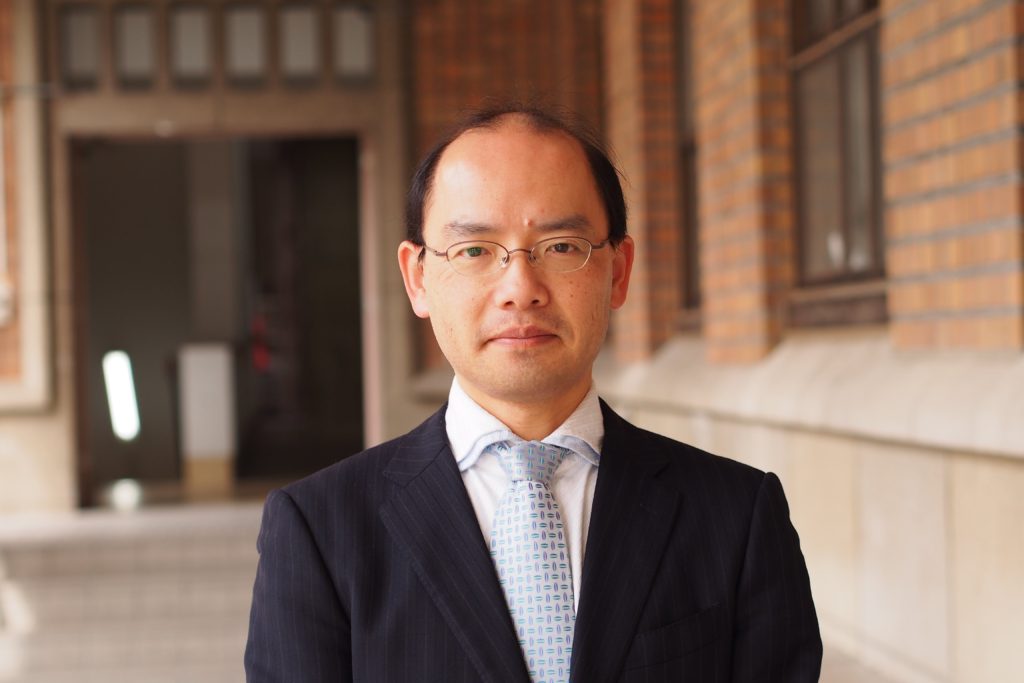
Toru Morotomi
Kyoto University
Toru Morotomi is a professor at Graduate School of Economics, Kyoto University.
In 1993, he earned B.A. of economics at Doshisha University, Kyoto. The areas on which he concentrated were environmental economics and public economics. He earned Ph.D. of economics at Kyoto University in 1998. The title of the dissertation is “Theory and Practice of Environmental Taxation (in Japanese).” He taught economic policy for four years (April 1998 – March 2002) at Yokohama National University, and currently teaching public finance and environmental economics at Kyoto University Graduate School of Economics (since April 2002). His major research interests are “greening” of the Japanese tax system, the Japanese climate change policy with economic instruments, and renewable energy promotion policies. In the research project sponsored by the Ministry of Education, he proposed a Japanese greenhouse gas emissions reduction strategy through environmental tax, emissions trading, and feed in tariff system. He is also currently involved in the government tax committee of the Cabinet Office as well as experts research committee on environmental taxation sponsored by the Ministry of the Environment.
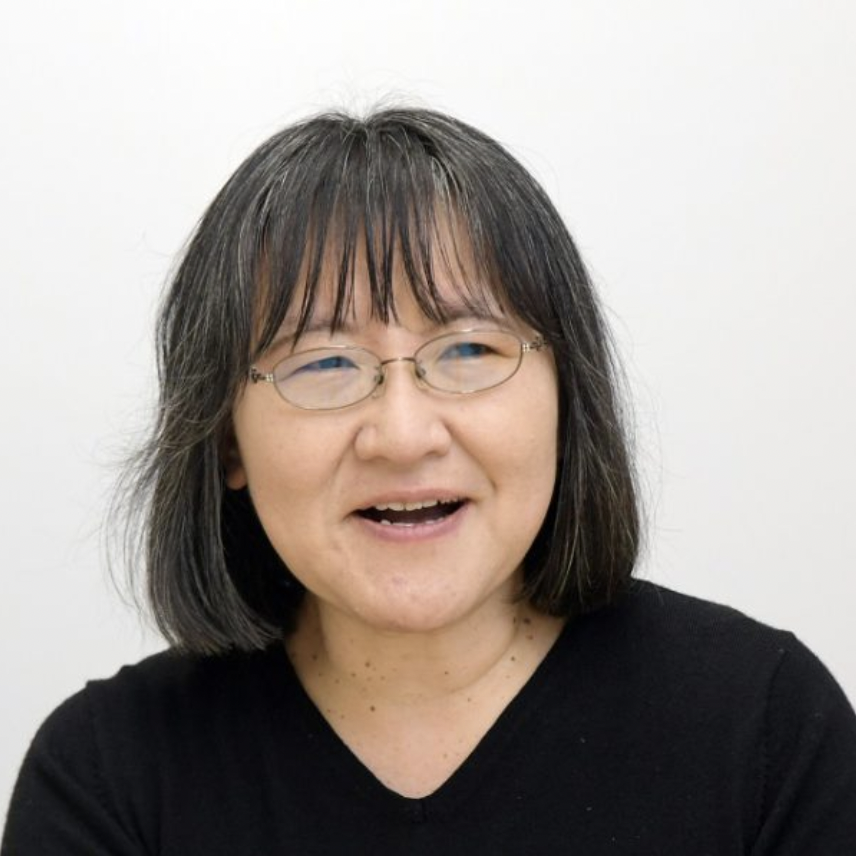
Yukari Takamura
The University of Tokyo
Yukari Takamura is Professor at the Institute for Future Initiatives, The University of Tokyo. After receiving Master of Laws (Public International Law) from Hitotsubashi University, Tokyo, she was appointed Associate Professor at Shizuoka University. Before joining the University of Tokyo in 2018, she worked as Professor at Ryukoku University, Kyoto, and Professor at Nagoya University, Japan. She also studied at Graduate School of University of Paris II (Panthéon-Assas), France and was Visiting Researcher at University of London, U.K.
She is member of the Editorial Board of Journal Sustainability Science and of the Editorial Advisory Board of Journal Climate Policy. She is member of Board of Directors of the Japanese Society for Environmental Economics and Policy Studies as well as member of the Board of Executive Directors of the Japanese Society for Environmental Law and Policy Studies. She serves as member of governmental advisory bodies, among others, Central Environmental Council as President, and Procurement Price Calculation Committee for Feed-in Tariff Scheme for Renewable Energy as Chair. She is also member of the Advisory Group on Climate Change and Sustainable Development of the Asian Development Bank (ADB). She is member of Science Council of Japan and serves as Vice President since October 2020, and received Environmental Conservation Merit’s Minister of the Environment Award in 2018.

Kimiko Hirata
Climate Integrate
Kimiko worked with the Japanese non-profit Kiko Network between 1998 and 2021, where she spearheaded climate policy and advocacy efforts and attended most of the annual UN climate conferences starting with COP3 in 1997. Concerned about a new boom in coal power plant construction in Japan, she launched a multipronged campaign, which has culminated in the cancellation of 17 planned coal plants to date. She was also successful in gaining support from shareholders for Japan’s first-ever climate shareholder resolutions targeting Japanese banks.
In recognition of her efforts, she was awarded the 2021 Goldman Environmental Prize in 2021, and selected as one of the BBC 100 Women 2022. She established Climate Integrate in 2022. She is a visiting associate professor at the Chiba University of Commerce, which is home to Japan’s first 100% renewable university initiative. Her publications include “Climate Change and Politics” in Japanese (2019). She has a Ph.D in social sciences from Waseda University in Tokyo.

